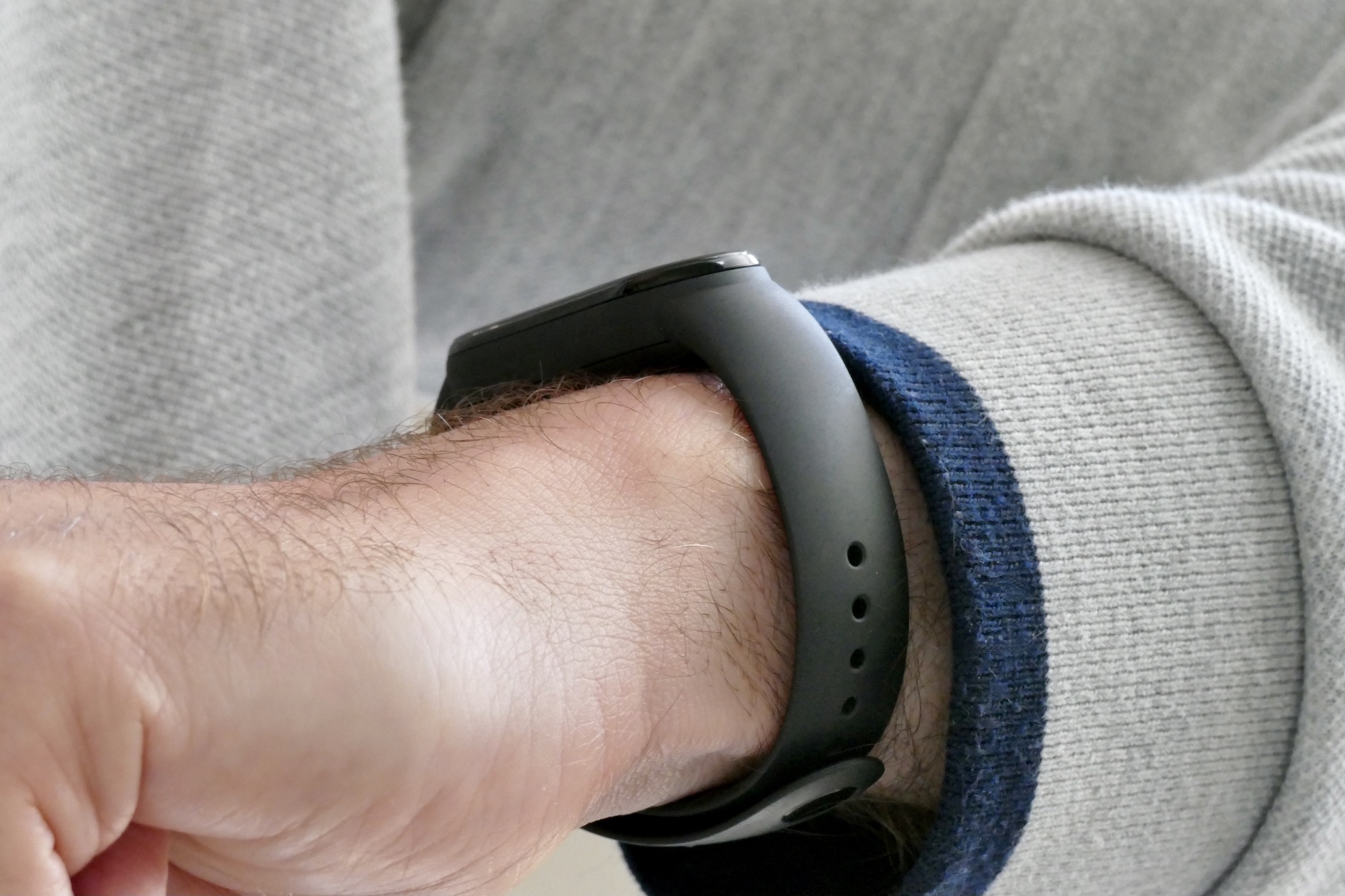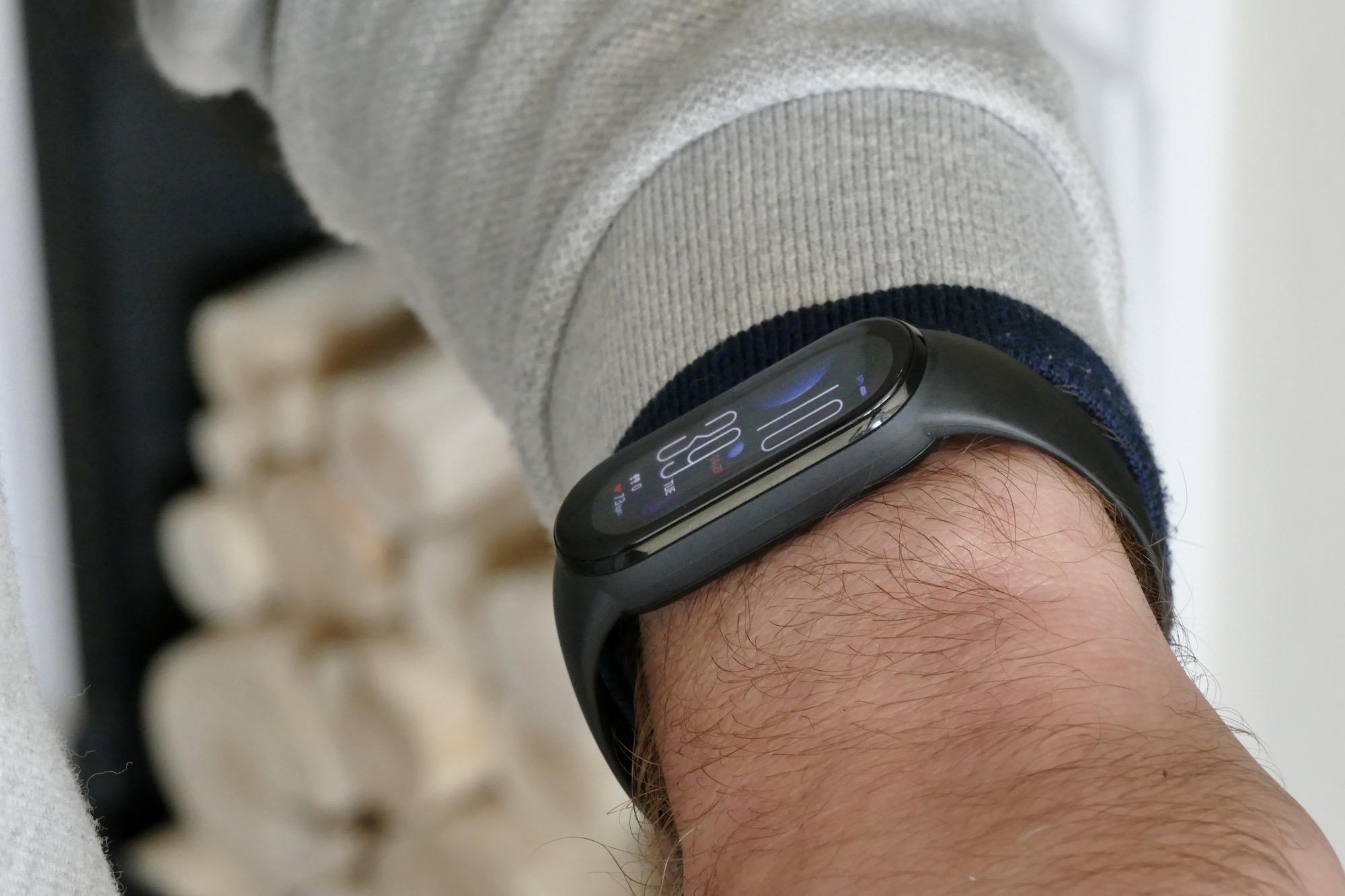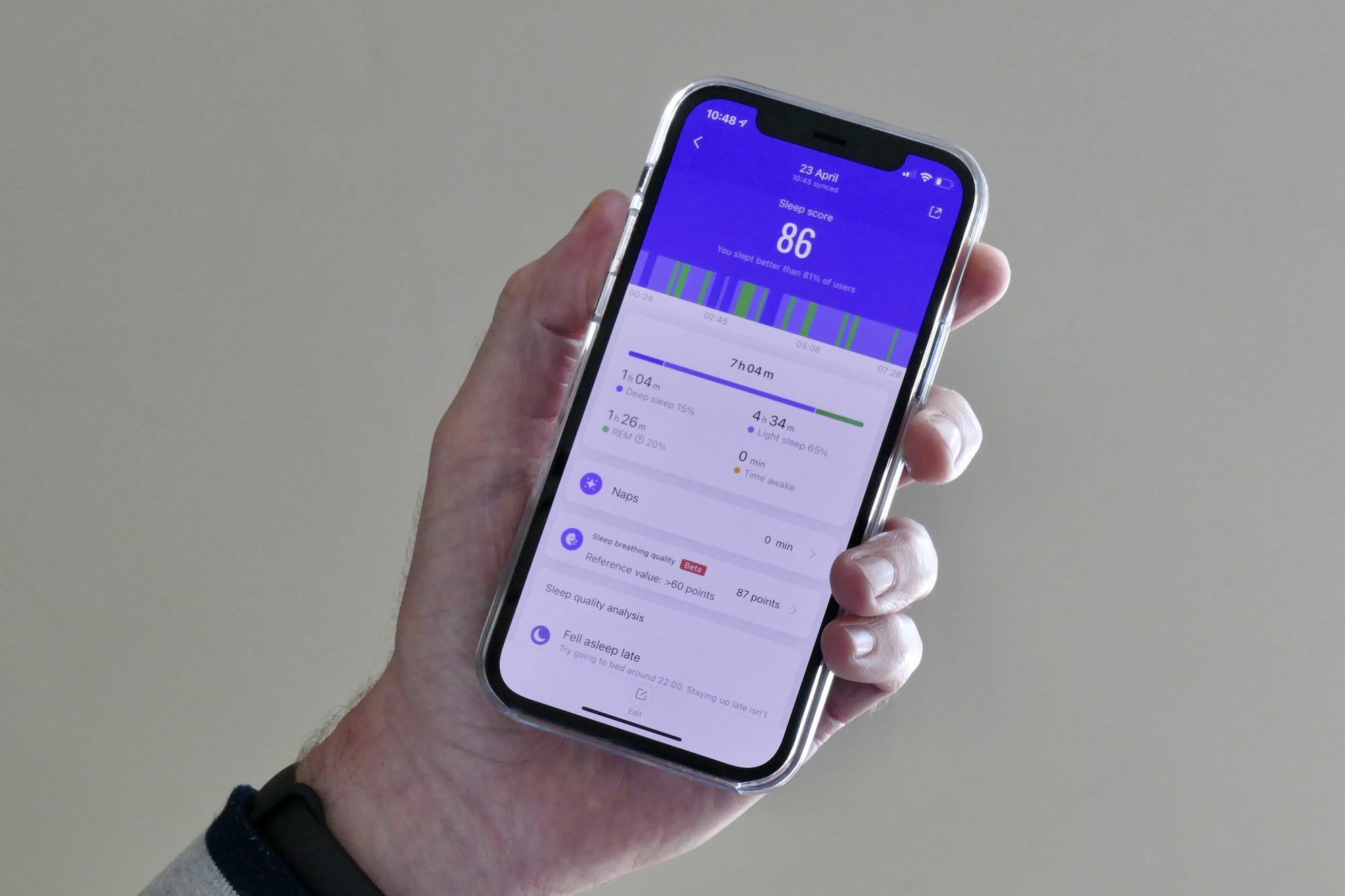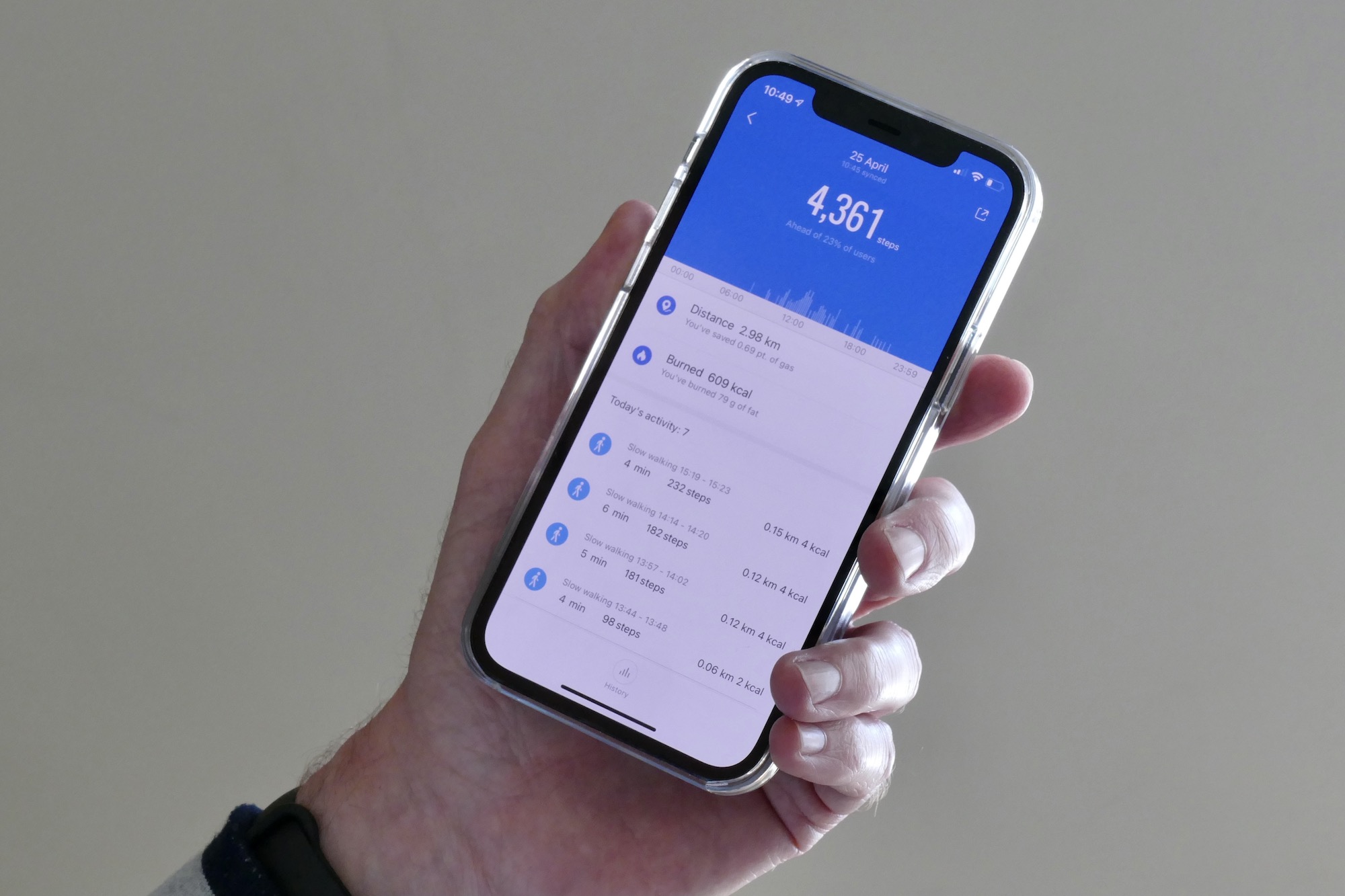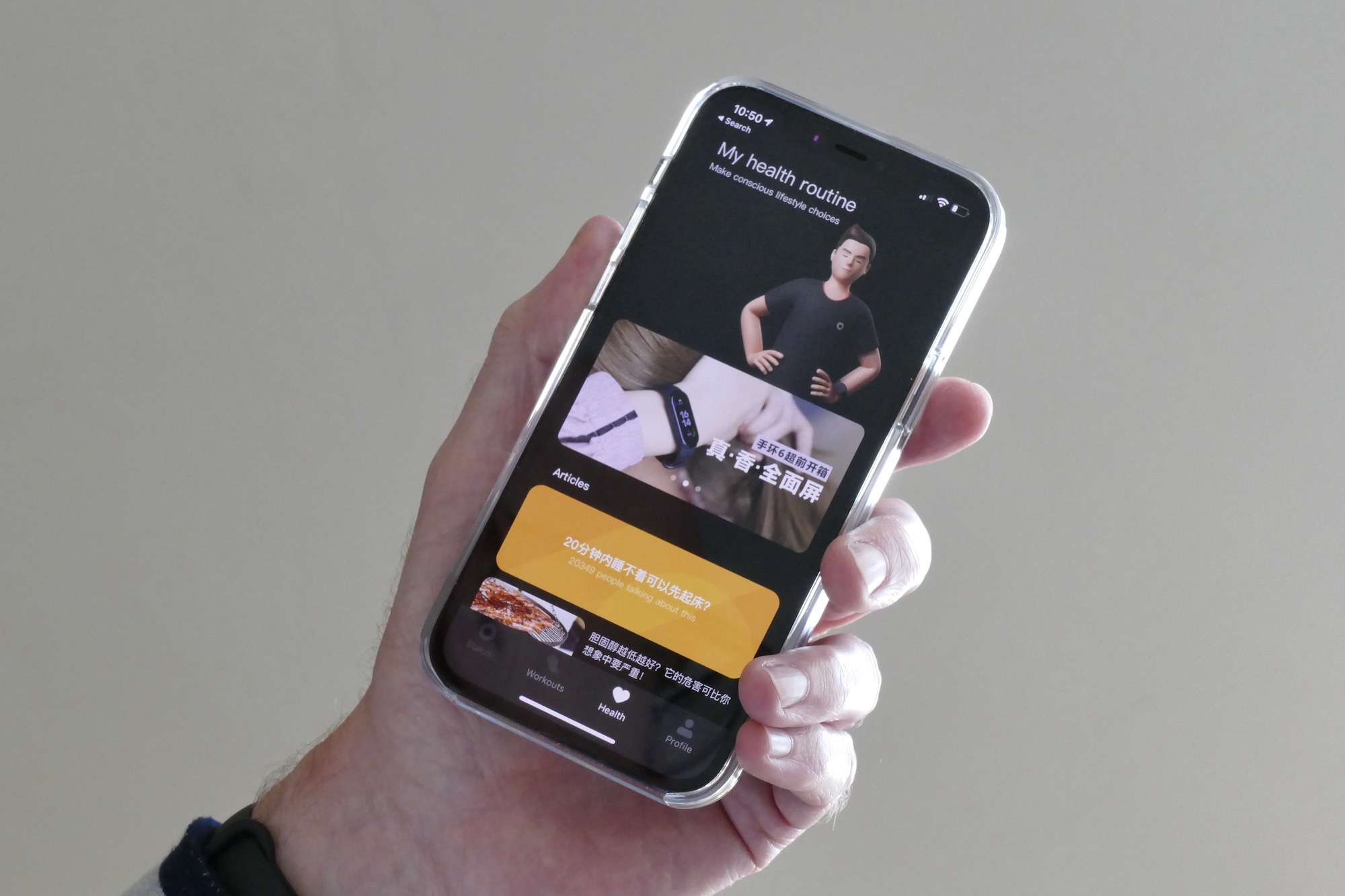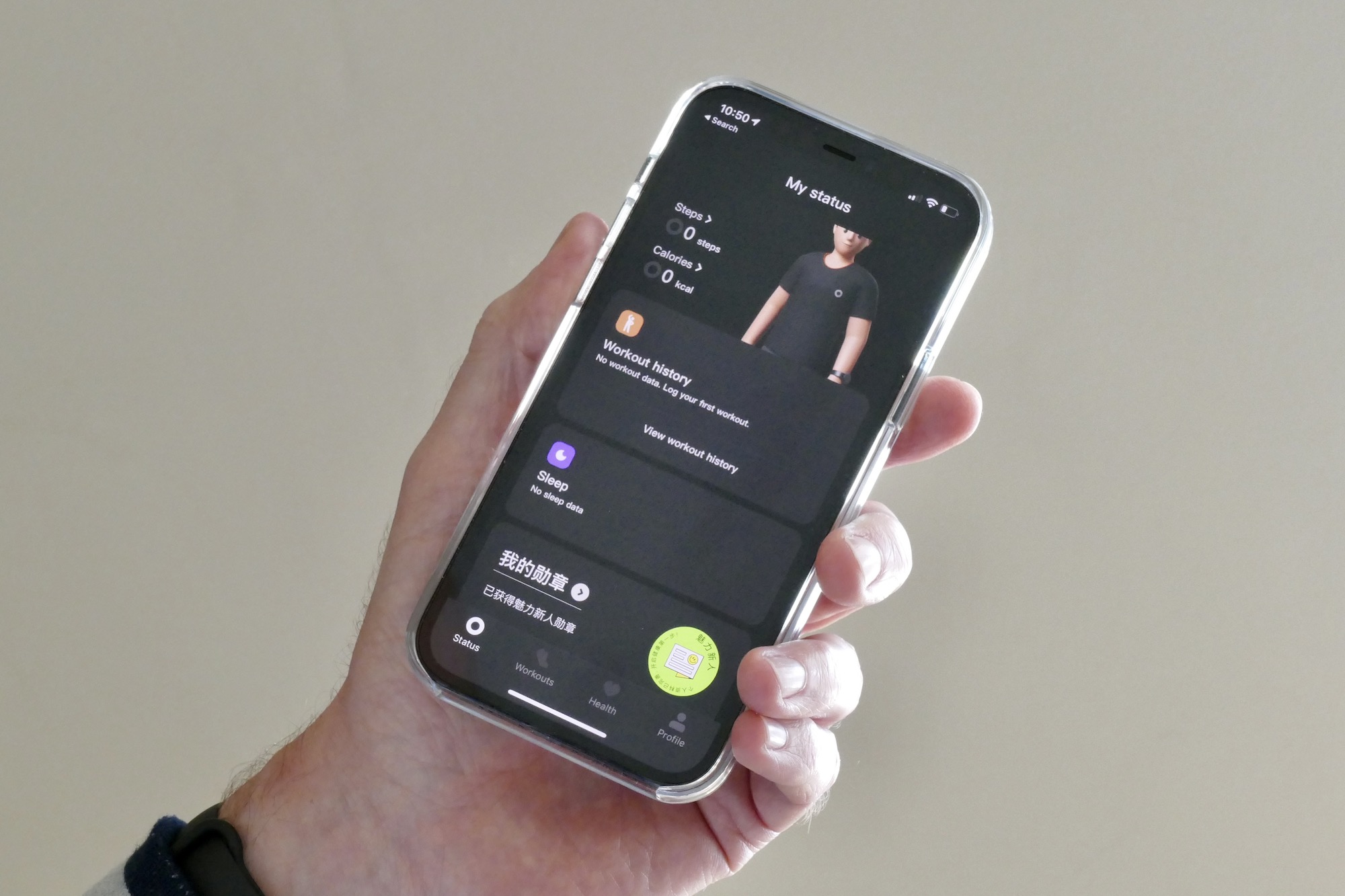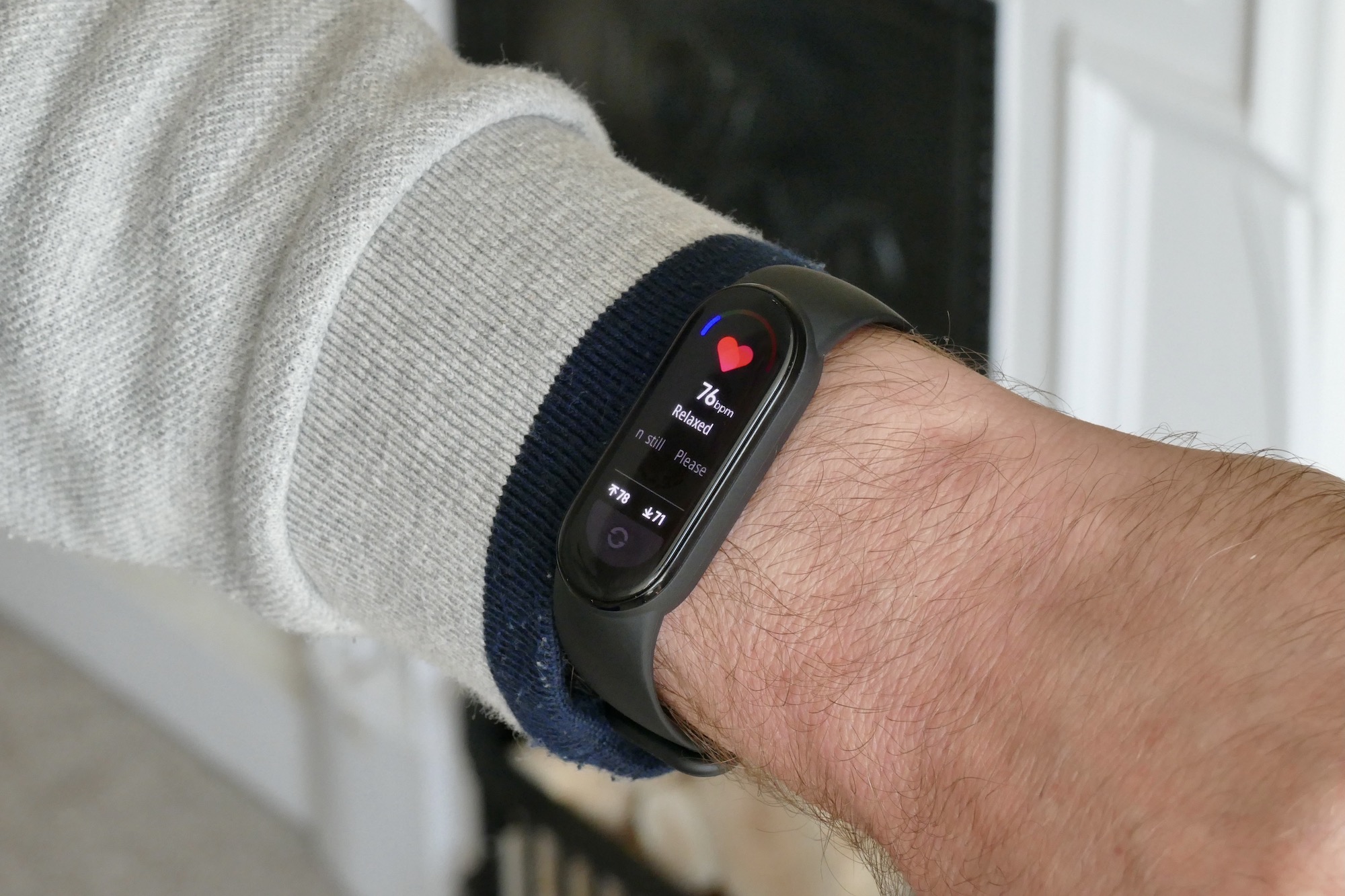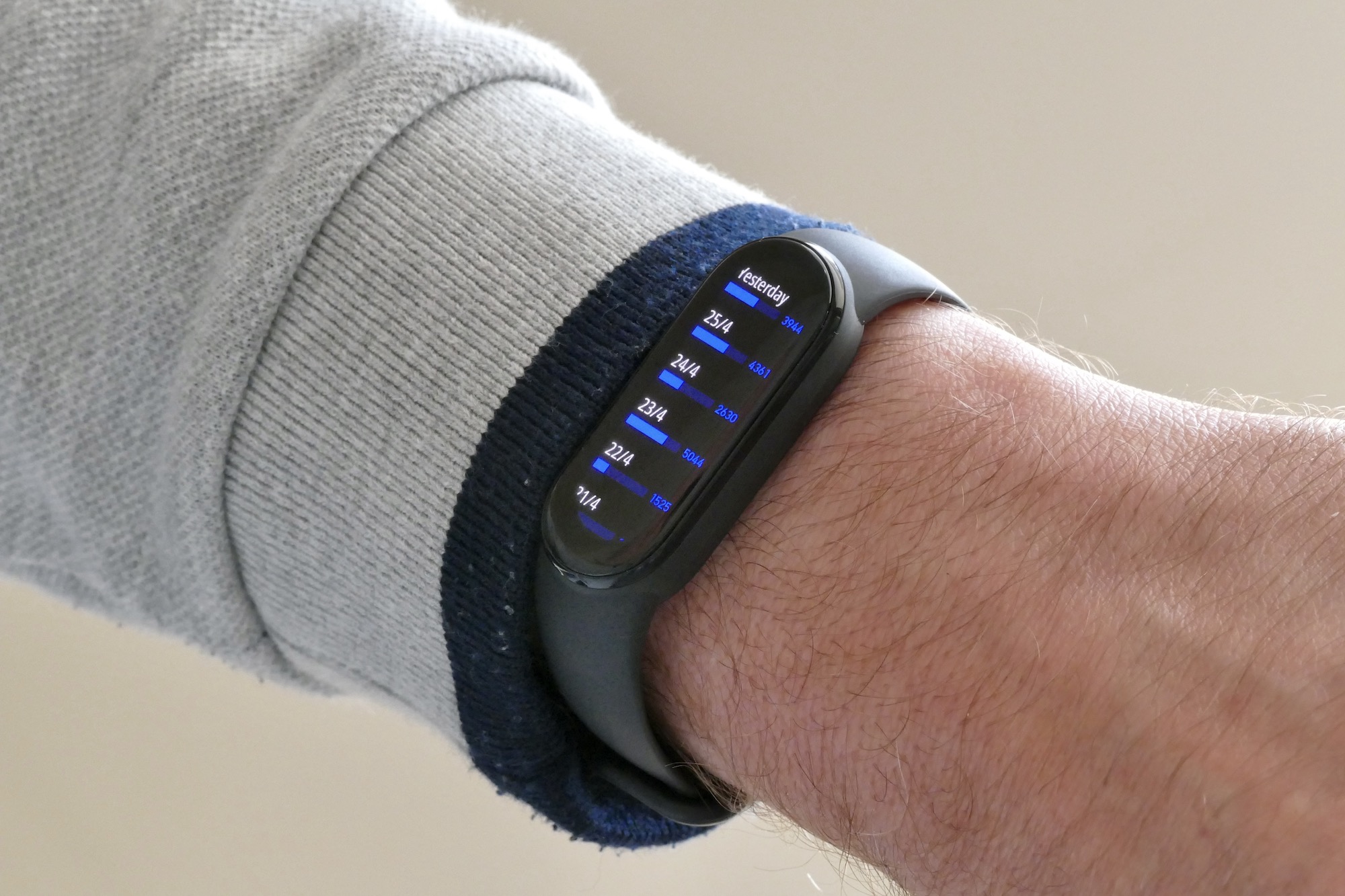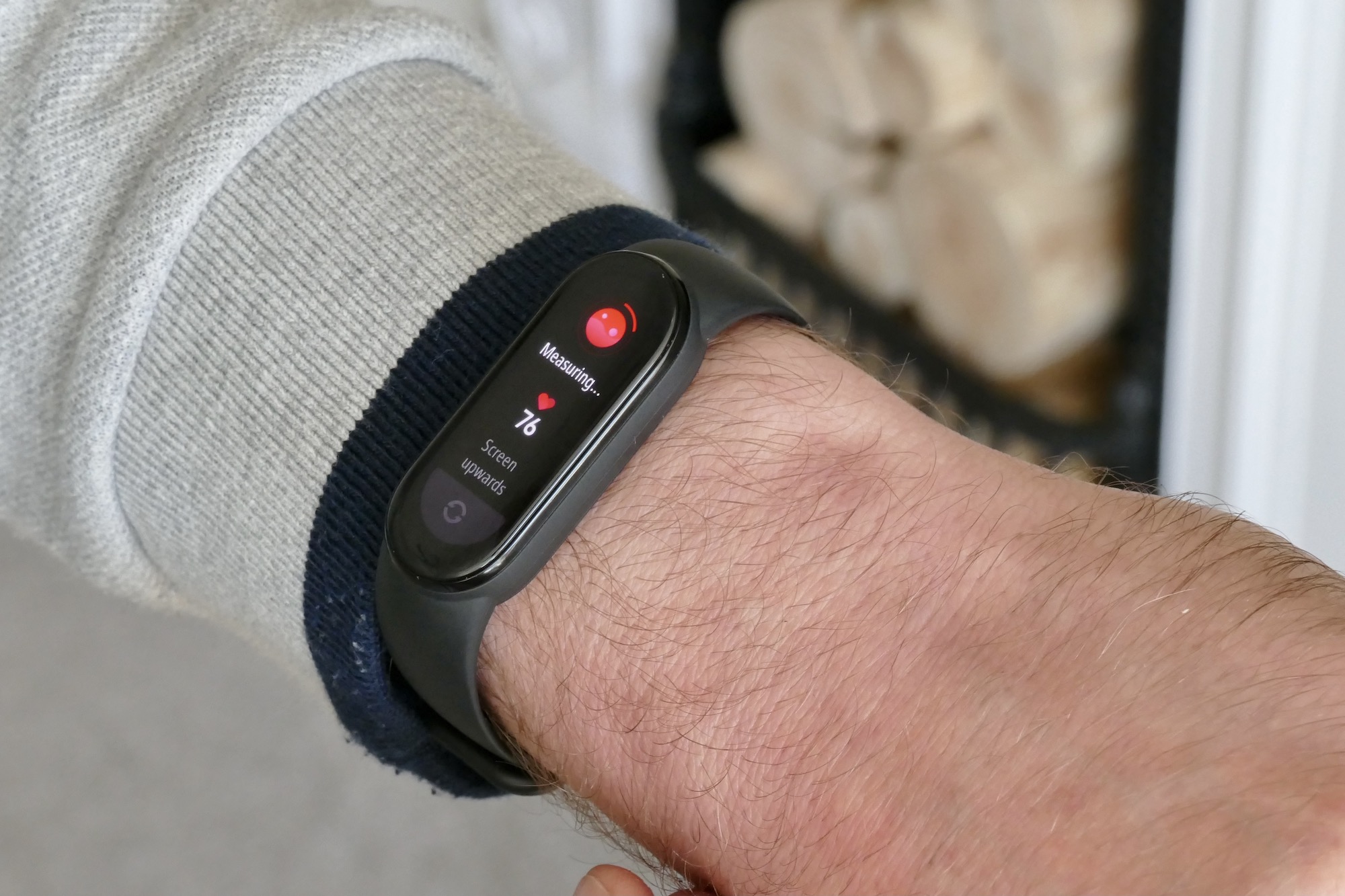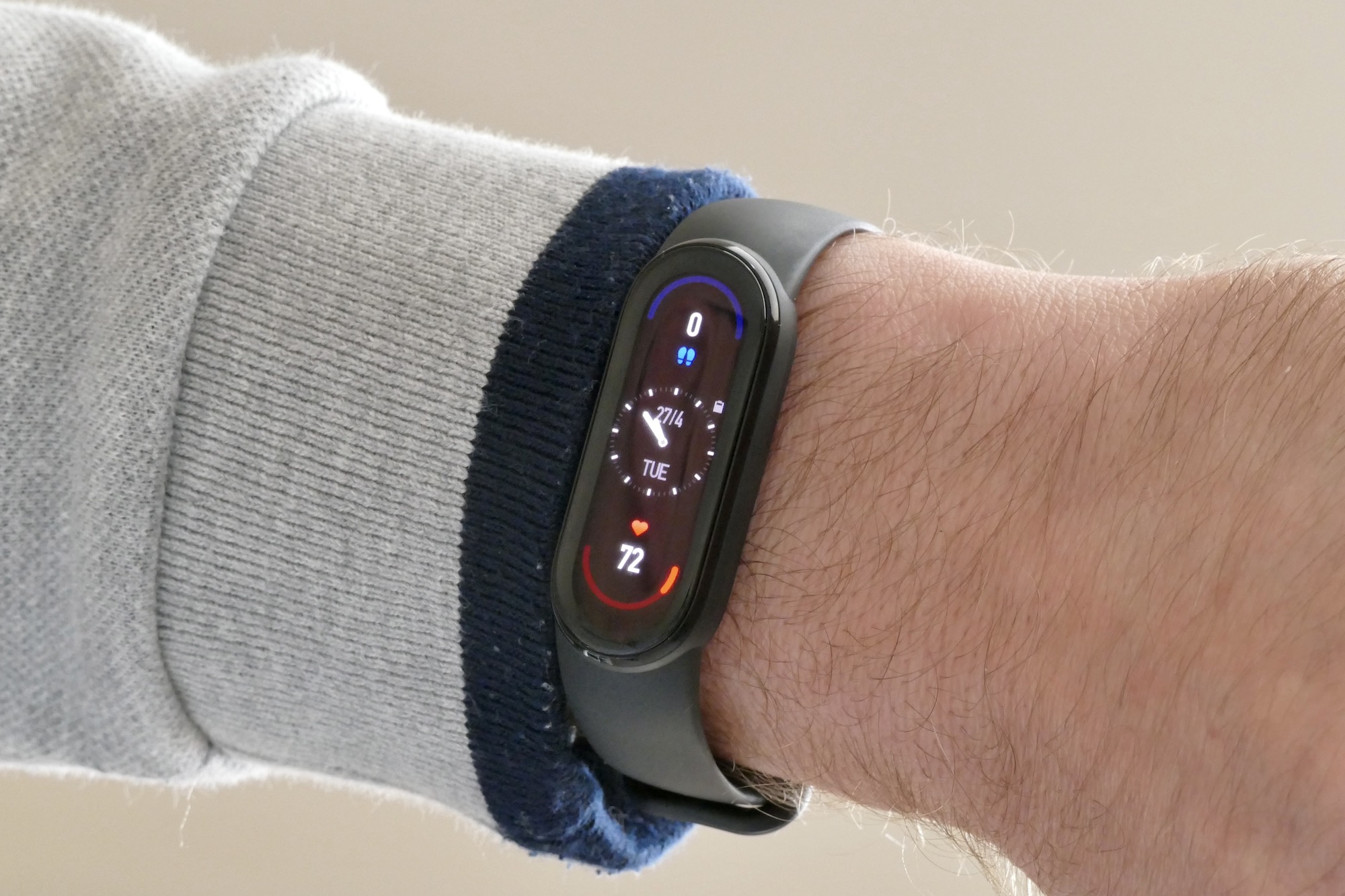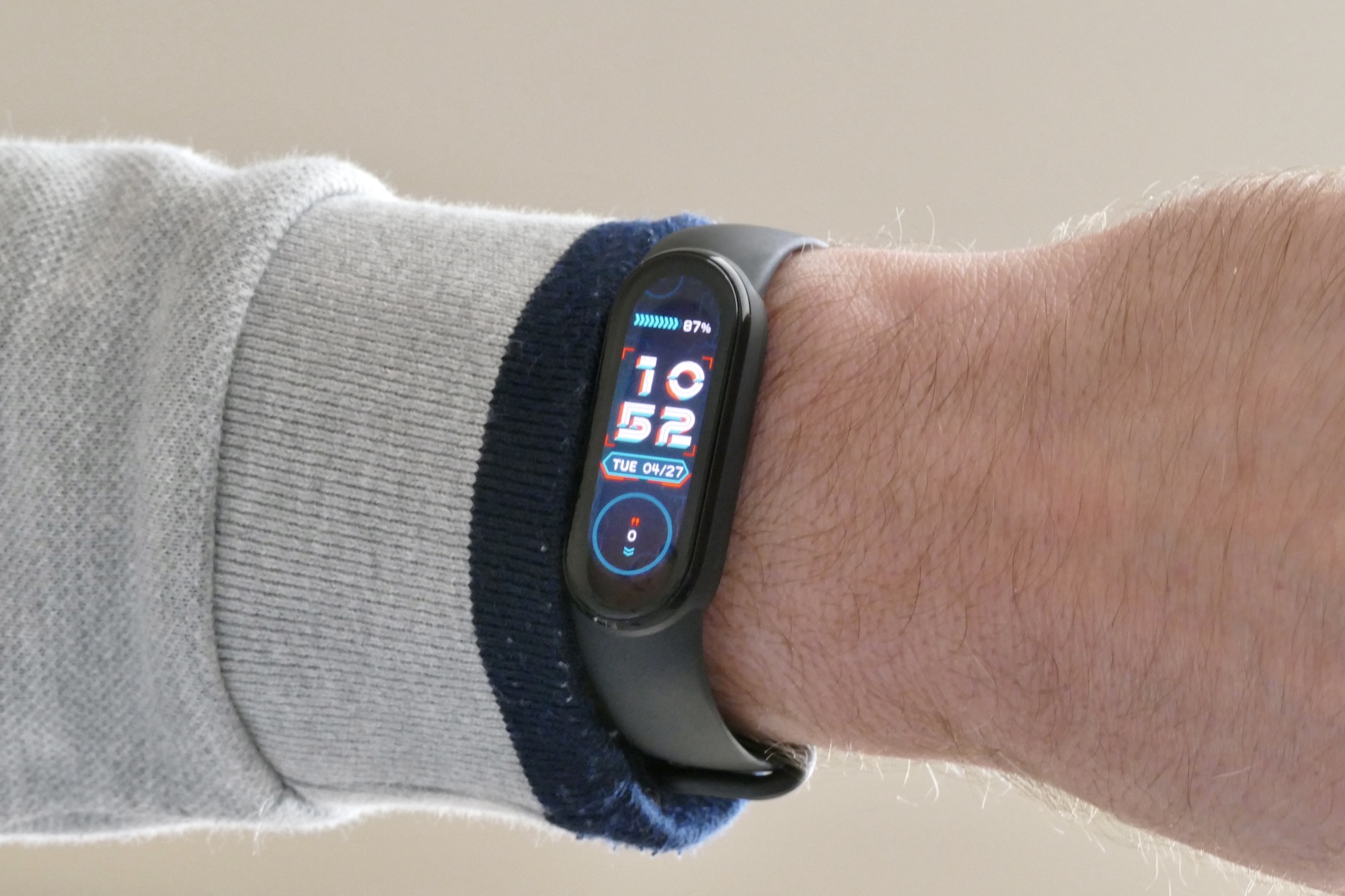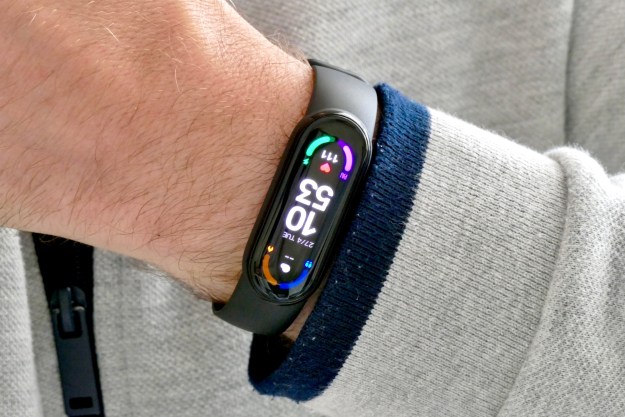
“The Xiaomi Mi Band 6 is packed with sensors to track your activity, simple software to make it easy to use, and a comfortable fit for 24-hour wearability. It's not for the seriously sporty, but it's great for everyone else.”
- Comfortable and lightweight
- Easy to use with a reliable app
- Comprehensive sensor array
- Heart rate sensor accuracy concerns
The Xiaomi Mi Band, or Mi Smart Band as it’s often known, has always been one of the best low-cost fitness bands available. Ever since the first one became available in 2015, Xiaomi has steadily updated it annually to keep up with new tech developments and it has only got better. The latest version is the Mi Band 6, which I’ve been wearing for more than a week now, and the formula hasn’t changed much.
It filled the space left by the Honor Band 6, another low-cost fitness tracker that surprised me with its ability and style, meaning that although there’s plenty of goodwill towards the Mi Band 6, it still had a tough job ahead of it. Does Xiaomi’s tried and tested wearable still succeed when others are edging more towards a smartwatch-like design? Here’s how it did.
Design
Xiaomi hasn’t dared to be different with the Mi Band 6’s looks, so it’s very similar to the Mi Band 5 — a generously sized screen on a core module, attached to a silicone band with a pin-and-hole fitting to keep it on your wrist. It weighs barely anything at about 13 grams, is just over 12mm thick, and in the black color scheme here, is an almost completely incognito piece of tech. The module can pop out of the band so you can swap it for brighter versions if you want the Mi Band 6 to stand out a little more.

The screen is a 1.56-inch AMOLED panel, up from the 1.1-inch AMOLED on the Mi Band 5, and it’s sharp, colorful, and bright. I’ve been able to glance and see it in all lighting conditions, although there’s no auto-brightness feature, so I’ve just left it set to maximum. Sadly it’s not an always-on screen, but you can set the amount of time the screen stays on (up to 10 seconds) and the raise-to-wake gesture is accurate and doesn’t require excessive movement to activate.
You have the choice of hundreds of different watch faces through the app, but don’t think this means you’re spoiled for choice. There isn’t much variation between them, and many are fairly unattractive. I struggled to find even a handful that I liked. I settled on one, and haven’t had any wish to change it for another.
I’ve found it to be very comfortable, and have had no issue wearing it 24 hours a day. The pin-and-hole fitting can sometimes be awkward, but it’s easy to do up here, plus there are masses of adjustments, so it’ll fit regardless of how thick your wrist is. It doesn’t get too sweaty, isn’t annoying at night, and the band itself hasn’t collected fluff either, so it’ll keep looking neat and new for longer.
No, the Mi Band 6 isn’t a style icon, but there’s a reason Xiaomi hasn’t deviated far from the Mi Band’s established look — because it works. Smartwatch-like fitness bands are fine, but there’s still space for a more compact, less intrusive fitness band that could be worn alongside a traditional watch. If you want a fitness tracker that fits well, is designed to be worn all day and night, is equipped with a pretty screen but isn’t trying to be a smartwatch, this is it. It’s also far better looking than the many cheap smartwatches that infest Amazon’s wearable section, and a much better option overall.
Activity tracking
Before going into detail, let’s talk about the app. I’ve been using the Mi Band 6 with an iPhone 12 Pro. Xiaomi’s app, called Xiaomi Wear, is available from the App Store. However, the band also works with the Mi Fit app, which is developed by Huami, the company behind the Amazfit range of wearables, and manufacturer of Xiaomi’s wearables. Both integrate with Apple Health, but it’s the Mi Fit app that I’d recommend using.

Confusing, right? Yes, especially because Mi Fit — the app not developed by Xiaomi — is the better option, because Xiaomi Wear hasn’t been completely localized for use outside China and there are still a few options and menus in Chinese. Mi Fit may not be that attractive to look at, but it contains all the information you need, stays connected without issue, and won’t put newcomers off.
Let’s move on to the activity tracking. The band has 30 different workout modes, six of which can be automatically detected, or quickly activated in the menu. The usual options including walking, running, and swimming are there, plus a range of more unusual activities like street dance, Zumba, and boxing. I found the auto-detection to be a little haphazard, so ended up starting the workouts myself.
The data collected in the app is visualized nicely, with graphs showing heart rate, pace, and heart rate zones, along with GPS routing if you provide the app access. The simplicity is repeated throughout, with everything from sleep to stress data illustrated logically and clearly, but sometimes menus can be quite dense and historical data hard to find. The main screen in the Mi Fit app shows stats to do with the band, including battery remaining.
It does take some learning, and doesn’t look as graphically modern as the Xiaomi Wear app, but it provides all the information you need in one place, and syncs reliably too. It also provides a PAI score, and the helpfulness of this statistic increases the longer you wear the band, but requires some reading into what it actually means as the in-app explanations are quite poor.
How about the accuracy? During daily activity steps and calorie burn were consistent with my Apple Watch, as were SpO2 blood oxygen measurements. However, heart rate accuracy is less certain. During exercise and when monitoring in the background, it tends to give a higher reading. This may be a consequence of the fastening of the strap, as it’s not easy or comfortable to get the pin-and-hole system really tight against your wrist. When you force a heart rate measurement the results are consistent with the Apple Watch at rest, showing there are some issues with the way it measures.
For sleep, I compared it to the under-mattress Withings Sleep Analyzer. It measured a very similar total sleep time and REM sleep, but under-estimated my deep sleep stage, and overestimated my light sleep stage compared to the Withings, both by about an hour. It shows a sleep score, and assesses breathing while asleep too. The sleep stage discrepancy isn’t a concern, as it’s not certain the Withings Sleep is 100% accurate either. However, the breathing measurements didn’t line up with the Withings, which again may be to do with wearing the band loosely at night. Otherwise, for general use by someone without specific sleep issues, the Mi Band 6 is a good sleep tracking partner.
the Mi Band 6’s activity tracking is excellent — comprehensive, easy to use, and logically presented for easy understanding
Other features include cycle tracking for women, breathing exercises, alerts to remind you to move around, and automatic stroke recognition when swimming. I had problems with the auto-pause feature, which seemed to pause workouts when I was still in the middle of it, forcing me to dig into the settings and turn the function off.
A software update may cure the slight overestimation of the heart rate sensor and some of the other accuracy concerns, but the rest of the Mi Band 6’s activity tracking is excellent — comprehensive enough for the casual fitness fan, easy to use, and logically presented for easy understanding.
Software and battery life
The Mi Band 6 is easy to use. Swipe up on the screen to show a vertical scrolling list of options, which includes workout modes and notifications, plus features like alarms and a world clock, and access to the heart rate monitor, stress monitor, and the SpO2 blood oxygen test. The order of the list can be changed in the app, as can features accessed with a side swipe, helping personalize the Mi Band 6. It’s all relatively smooth and once the features have been placed in an order suitable for your own use, it’s very convenient to live with.

The band shows notifications from your phone with moderate regularity, with most, but not all, alerts showing on your wrist. It seemed to have a problem showing Gmail notifications, for example, but not with Twitter or Outlook. It may be down to settings in iOS, but I couldn’t seem to solve it. It’s a nice addition, but don’t expect alerts to be that helpful, as long messages don’t show in their entirety, and there’s no way to interact with them.

Xiaomi claims the battery will last for two weeks before it needs a recharge, but this will depend on your own use. If you want to take advantage of the continuous monitoring features for heart and stress, track sleep, and record a workout each day, it will last half this amount of time. My use with all these features active saw the battery at 8% on day seven. Recharging is quick, but is done with a short proprietary cable which is small and easy to lose.
Price and availability
The Mi Band 6 costs 40 British pounds, which is around $55. It’s available through Xiaomi’s online store in the U.K. Anyone in the U.S. will have to import one, although the Mi Band 6 will find its way onto Amazon, just like the Mi Band 5. One thing to note is to secure the U.K. or “global” version, otherwise it will include some China-specific features that won’t work.
Our take
The Mi Band 6 is an excellent fitness band for people interested in their overall health, and who want to track their everyday movements and make improvements. I word it this way because the Mi Band 6 is not a serious fitness tracker for sports addicts. It doesn’t have GPS built in, for example, and the accuracy concerns mean anyone seriously looking to improve their performance may find it inadequate.
This is all reflected in the price. High-end fitness tracking products, like the Suunto 7 or Garmin Forerunner 745, cost $500 or more, and are far better suited to people who are training for a marathon, or are seriously into a very specific activity. If that’s not you, then spending so much is a bit pointless, and the Xiaomi Mi Band 6 is a great value when you consider what it can do, and the sensors it contains.
Xiaomi hasn’t broken its tried-and-tested formula with the Mi Band 6, it remains a cheap, comfortable fitness band with a list of focused activity features, and all the crucial sensors a modern tracker needs to satisfy most people.
Is there a better alternative?
Samsung’s Galaxy Fit 2 costs $60, has a similar design, and is more readily available, but it doesn’t have an SpO2 sensor for improved sleep tracking, or GPS either. The Honor Band 6 is a good alternative if you prefer a larger screen and a more traditional clasp-style band. If Fitbit is your brand of choice, the Fitbit Charge 4 is our recommended version but at $150 it’s a lot more expensive. Sometimes there are decent deals to lower this price a little though.
How long will it last?
The Mi Band 6 should be hardwearing due to its simple plastic construction and being encased in the protective strap, which can be cheaply replaced if it breaks. The whole band has 5ATM (50 meters) water resistance so it’s suitable for swimming but not for diving. Provided Xiaomi maintains app support (both versions had been updated within the last two weeks when writing this review) the Mi Band 6 will last for several years without issue.
Should you buy one?
Yes. It may require some effort or patience to secure one in the U.S., but it’s a good fitness tracker at a very sensible price.


